
In the fast-paced world of logistics and field service management, efficiency is the name of the game. The days of plotting out routes manually are long gone, replaced by a smarter solution: Intelligent Route Planning.
But what makes a route planning solution truly “intelligent”? To help you navigate this evolving field, we’re diving into the top 15 must-have features that a top-notch Intelligent Route Planning system should offer. From optimising routes to boosting customer satisfaction, these essentials are the backbone of modern field service and delivery success.
A fundamental feature in any route planning system is smart route optimisation. With complex algorithms, it identifies the best possible routes for your fleet, taking into account factors like traffic, weather, and specific delivery windows. By cutting down travel time, you can not only reduce fuel costs but also improve on-time performance.
No route plan is set in stone—things can change at a moment’s notice. With real-time traffic and weather updates, you can avoid unexpected delays and keep your operations running smoothly.
Not all jobs are alike, so flexibility in route planning is key. Look for systems that allow route customisation based on specific parameters—whether it’s priority stops, customer requests, or preferred drivers.
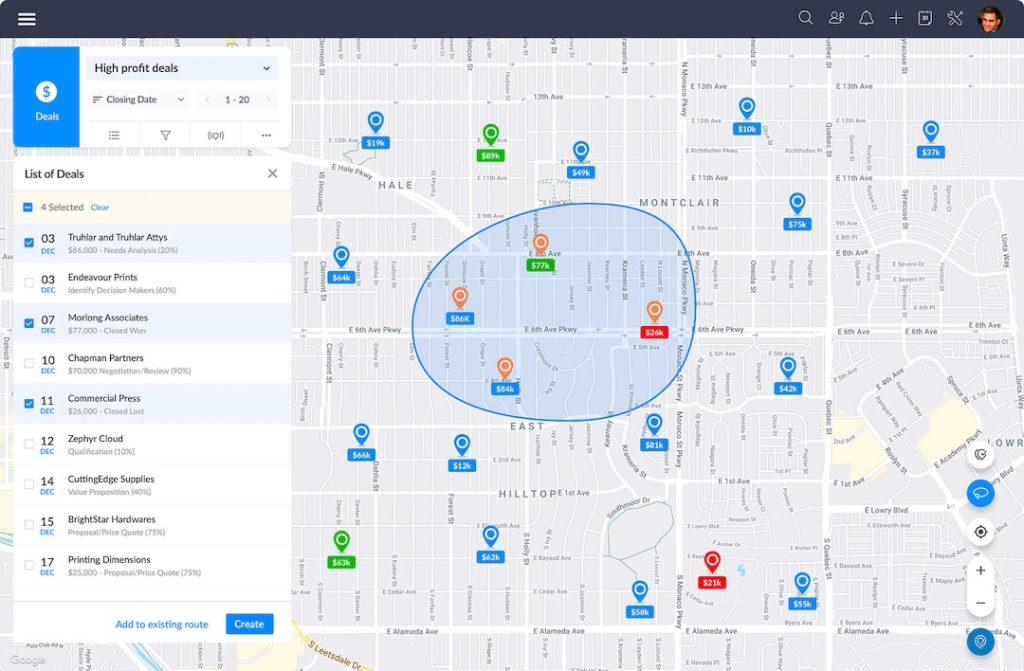
Let’s face it: plans change. Intelligent route planning allows for dynamic route adjustments so drivers can re-route on the fly without disrupting the whole schedule.
Monitoring driver behaviour isn’t about micromanaging; it’s about safety and efficiency. Systems with driver behaviour monitoring can track things like speed, braking patterns, and idling time, helping you maintain a safer and more efficient fleet.
With geofencing, you can set virtual boundaries for your vehicles. This means notifications whenever a vehicle enters or leaves a designated area, adding an extra layer of control and security to your operations.
Keeping customers in the loop is crucial for a positive experience. Intelligent route planning includes customer notifications and tracking, so your customers can follow their deliveries in real-time and get updates on any changes.
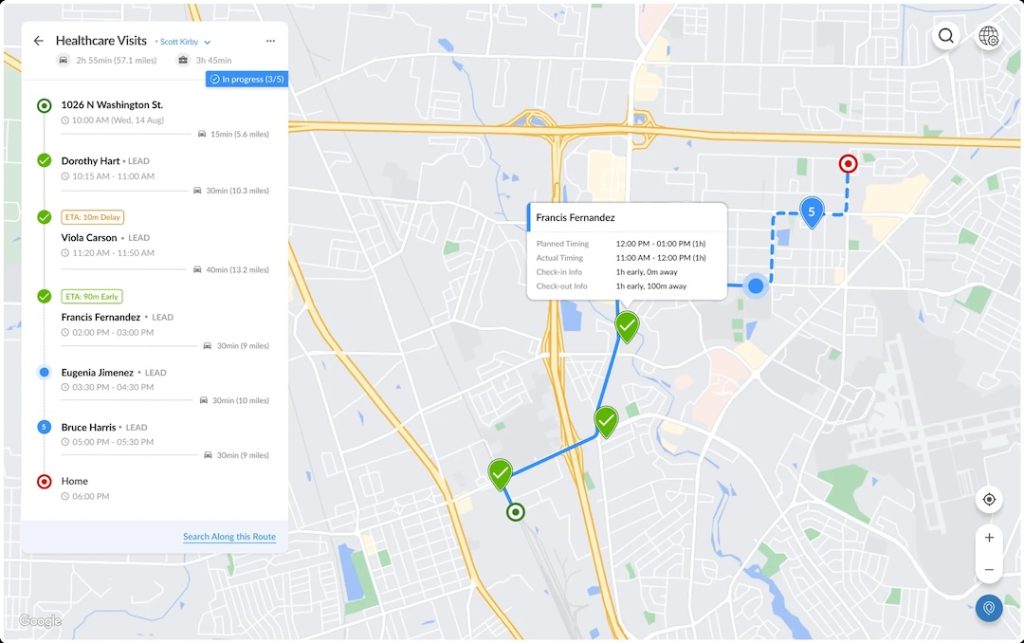
Route planning systems with fuel and cost management tools track mileage, fuel usage, and associated costs to keep your budget in check. It’s one of the most effective ways to maximise profitability.
Data is power, and with performance analytics and reporting, you can identify what’s working and what’s not. Access to detailed reports on delivery times, driver performance, and route efficiency can guide smarter decision-making.
The final must-have is integration with existing systems. A good Intelligent Route Planning tool should seamlessly connect with other platforms like CRM, ERP, and inventory systems, so data flows smoothly across your operations.
An interactive map visualisation allows you to see your prospects and clients geographically, enabling better planning and decision-making. By filtering and prioritising based on deal value, lead source, and other criteria, you can allocate resources more effectively.
Efficiently distributing field visits, jobs, and deliveries among team members is vital. An intelligent system can eliminate manual assignments, ensuring optimal resource utilisation and balanced workloads.
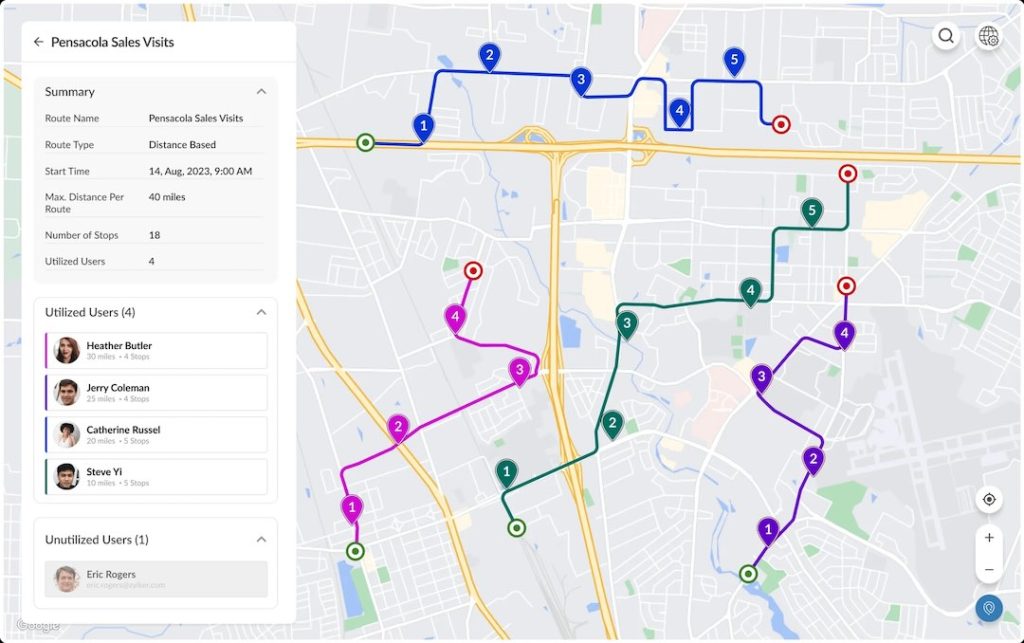
Monitoring the progress of your field team’s routes in real-time helps in assessing performance and making necessary adjustments. Tracking check-ins, check-outs, mileage, and time spent provides valuable insights into operational efficiency.
Comprehensive reports and dashboards offer a clear view of your field team’s performance. Metrics such as route status, completed visits, travel distance, duration, and deviations help in identifying areas for improvement and recognising successes.
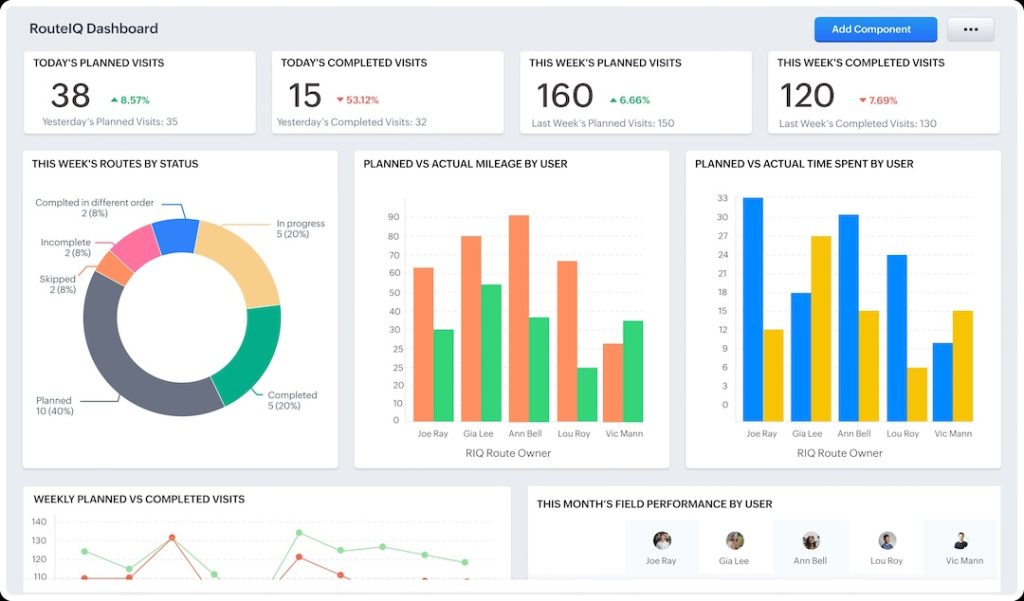
In the field, having access to route planning tools via mobile devices is essential. Features like navigation, ‘near me’ options, check-in/out capabilities, and proof of delivery functionalities enhance field productivity and ensure seamless operations.
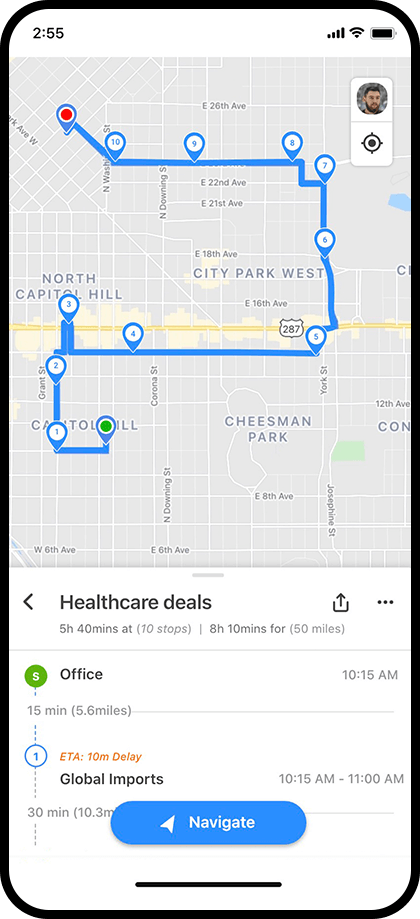
Q: How does map visualisation benefit route planning?
A: Map visualisation provides a geographical perspective of clients and prospects, aiding in efficient route planning and resource allocation.
Q: Can route progress tracking improve operational efficiency?
A: Yes, by monitoring real-time progress, you can make timely adjustments, address issues promptly, and optimise overall efficiency.
Q: Why is mobile accessibility important in route planning?
A: Mobile accessibility ensures that field teams have the necessary tools and information at their fingertips, leading to better coordination and productivity.
Incorporating these additional features into your Intelligent Route Planning system can significantly enhance your operational efficiency. By leveraging map visualisation, automated route planning, real-time tracking, comprehensive reporting, and mobile accessibility, you position your business for success in a competitive landscape. Remember, the goal is not just to reach your destination but to do so in the most efficient and effective manner possible.
